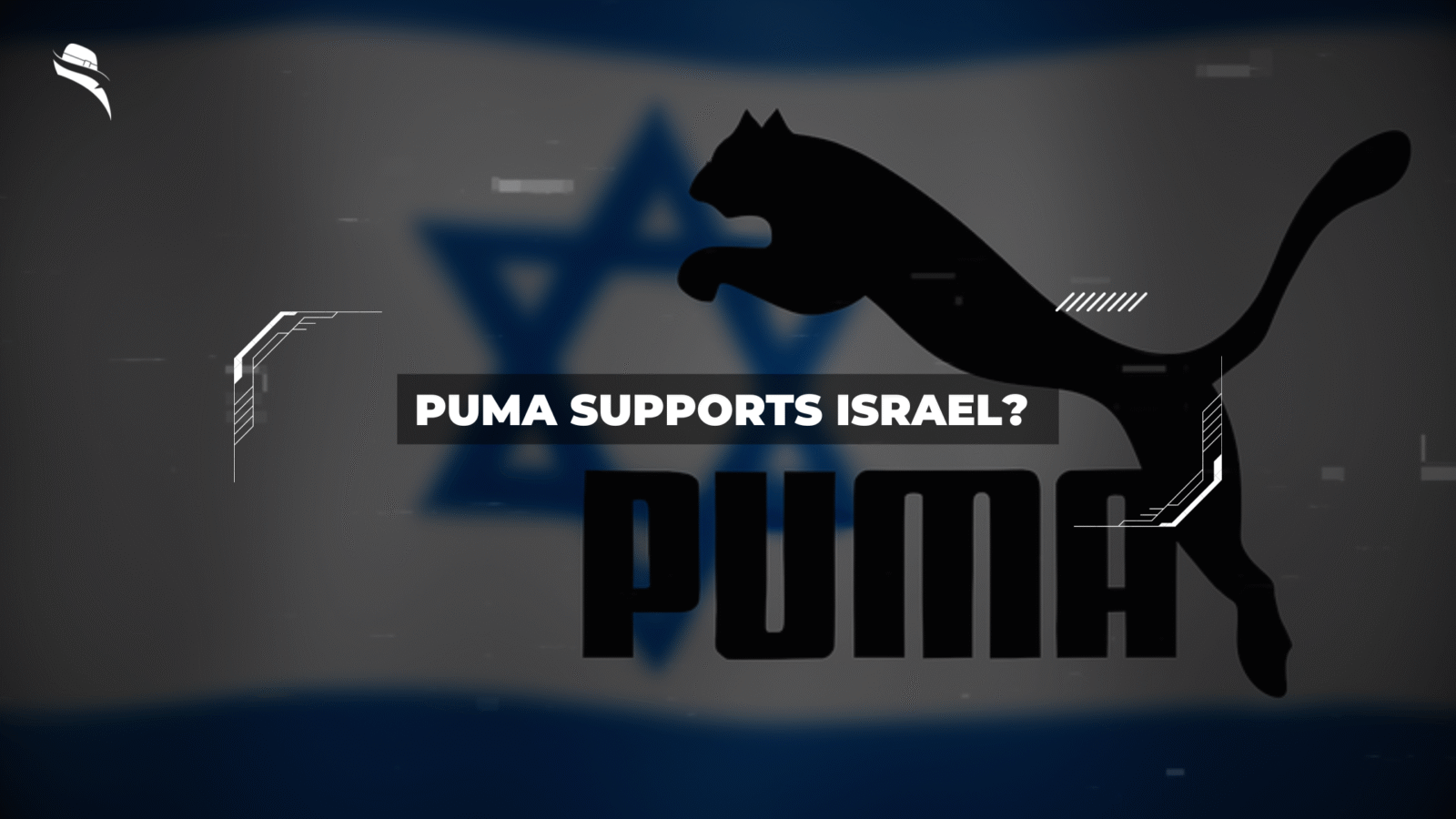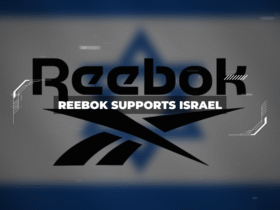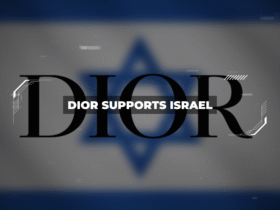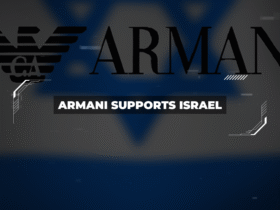Puma supports Israel through its sponsorship of the Israel Football Association (IFA) that began in 2018. However, this partnership has become increasingly controversial since 215 Palestinian sports teams called for a global boycott of the German sportswear giant that same year. The boycott campaign gained significant momentum amid Israel’s military operations in Gaza, which have reportedly killed more than 44,000 Palestinians, including hundreds of footballers.
The controversy surrounding Puma’s sponsorship centers primarily on the IFA’s inclusion of teams that operate in Israeli settlements, which the United Nations has declared illegal under international law. Following years of sustained boycott pressure, Puma announced it would end its sponsorship of Israel’s national football team in 2024.
The financial impact is already evident, as the new sponsor, Erreà, signed a contract with a 40% reduction in sponsorship fees—down from approximately €100,000 per year under Puma to €60,000 per year. Despite Israel being ranked 75th in FIFA’s world rankings and having appeared in a major international tournament only once (the 1970 World Cup), the sponsorship controversy has become a focal point in the larger Boycott, Divest, Sanctions (BDS) movement targeting companies supportive of Israel.
Puma’s Sponsorship of the Israel Football Association
In 2018, German sportswear giant Puma entered a formal partnership with the Israel Football Association (IFA), marking the beginning of a contentious business relationship that would later face significant international scrutiny. The agreement positioned Puma as the official kit provider for all Israeli national football teams, replacing previous sponsor Adidas. This partnership involved not only supplying uniforms and equipment but also granting Puma prominent visibility during matches and training sessions.
When the partnership began, and what it involved
The Puma-IFA agreement was initially celebrated as a standard sports sponsorship deal. Under the terms, Puma provided customized kits, training gear, and equipment to Israeli teams across all competitive levels. Additionally, the partnership included financial support estimated at approximately €100,000 per year, representing a significant investment in Israeli football. The contract was originally set to run through 2024, establishing Puma as a key supporter of Israeli sports on the international stage.
Why the IFA is controversial
The controversy surrounding the IFA stems primarily from its territorial reach. The association includes teams based in illegal Israeli settlements in the occupied Palestinian territories. According to international law, specifically United Nations resolutions, these settlements violate the Fourth Geneva Convention. Furthermore, the IFA’s jurisdiction extends to teams operating in areas that the International Court of Justice has ruled are subject to illegal occupation. This territorial dispute fundamentally transformed what might otherwise have been a routine corporate sponsorship into a lightning rod for international criticism and activism.
Puma’s role as the only major sponsor after Adidas
After Adidas ended its relationship with the IFA, Puma became essentially the only major international brand willing to sponsor Israel’s national football teams. This exclusivity placed Puma in a particularly visible position amid growing calls for corporate accountability regarding business activities in contested territories. Consequently, Puma found itself isolated as other major sportswear companies apparently chose to avoid the controversy associated with supporting Israeli sports organizations operating in disputed territories.
The Boycott Campaign Against Puma
“Liverpool and Chester football clubs also decided not to renew sponsorship contracts with the brand, which Palestine Solidarity Campaign said was a result of following campaign pressure.” — Ethical Consumer, Ethical Consumer Magazine
The Palestinian-led Boycott, Divestment, Sanctions (BDS) movement launched a targeted campaign against Puma shortly after the sportswear giant signed its partnership with the IFA. This coordinated effort would grow into one of the most persistent corporate boycotts connected to the Israel-Palestine conflict.
Origins of the BDS call in 2018
The boycott campaign emerged after Adidas ended its IFA sponsorship in July 2018 following the delivery of over 16,000 signatures to its headquarters. Shortly afterward, more than 200 Palestinian football clubs and sport associations signed a letter urging Puma to end its new sponsorship, citing the IFA’s inclusion of teams based in illegal Israeli settlements on Palestinian land.
Global protests and actions by activists
Demonstrations against Puma quickly spread worldwide. The Second Global #BoycottPuma Day of Action featured more than 50 protests across 20 countries. Moreover, activists placed fake advertisements on the London Underground featuring the Puma logo with the words “Boycott – Give Puma the boot”. In fact, protesters regularly occupied Puma offices and stores while over 1,100 tweets subverted the launch of Puma’s #Reform campaign.
Impact on Puma’s brand and public image
The persistent pressure campaign took its toll. In a chance encounter, a Puma attorney admitted to a Palestinian rights supporter that the boycott calls were making their lives “miserable”. Eventually, internal leaks revealed the company’s struggle with mounting pressure.
Athletes and retailers cutting ties with Puma
As a result of the boycott, numerous sports entities severed ties with Puma. Malaysia’s largest university ended its football team sponsorship deal, while UK clubs, including Luton Town FC, dropped Puma, and Chester FC decided not to renew their contracts. Similarly, Ireland’s largest sportswear chain, O’Neills, removed Puma products from its stores after facing protests.
Puma’s Decision to End the Sponsorship
After years of global boycott pressure, Puma ultimately announced in December 2022 that it would not renew its sponsorship agreement with Israel’s national football team. The news came as the current contract was set to expire in 2024, ending a partnership that had drawn widespread criticism.
Timeline of the announcement
The sportswear giant made its announcement through sports outlets rather than through official corporate channels, leading to questions about the timing and motivation behind the decision.
Disputes over who ended the deal
Notably, both sides claimed credit for terminating the relationship. While Puma maintained it was their business decision, BDS activists celebrated it as a victory for their years-long campaign targeting the company’s support for Israeli teams based in the occupied territories.
Puma’s official explanation: commercial strategy
Puma representatives attributed the decision to a new commercial strategy focusing on fewer sponsorships with higher visibility. Nevertheless, this explanation came after years of sustained pressure from Palestine solidarity activists worldwide.
Leaked memos and internal contradictions
Although Puma publicly framed the decision as purely business-related, internal communications painted a different picture. Company executives had reportedly grown concerned about the reputational damage from the ongoing boycott campaign, undoubtedly factoring into their decision to distance themselves from the controversial sponsorship deal.
What Happens Next: Reactions and Replacements
Following Puma’s decision, Italian sportswear brand Erreà signed a two-year sponsorship deal with the Israel Football Association (IFA) in August 2024. The agreement included a significant 40% reduction in sponsorship fees, dropping from approximately €100,000 per year under Puma to just €60,000 annually.
Erreà replaces Puma with reduced sponsorship fees
Erreà was scheduled to replace Puma on January 1, 2025. The substantial fee reduction and delayed signing (only occurring in August 2024) indicated that the IFA faced considerable difficulties finding a replacement sponsor. This financial downgrade reflected the growing impact of boycott campaigns on companies associated with the IFA.
Calls to boycott Erreà
Immediately after announcing the sponsorship deal, Erreà faced intense pressure from Palestinian activists and global supporters. The boycott calls against Erreà emerged swiftly, linking the company to Israel’s actions against Palestinians. Subsequently, Erreà backed out of the deal before delivering a single jersey.
Ongoing boycott of Puma until contract ends
Meanwhile, activists continue targeting Puma until its contract officially expires in December 2024. The Palestinian Campaign for the Academic and Cultural Boycott of Israel emphasized that “until then, it is still complicit”. Indeed, Reebok has reportedly signed a two-year contract to replace Erreà.
Legal context: ICJ rulings and international law
The sponsor changes occur against a backdrop of significant legal developments. In July 2024, the International Court of Justice (ICJ) ruled that Israel’s occupation of Gaza and the West Bank, including East Jerusalem, is illegal. Primarily, the court declared that Israel’s settlements, annexation, and use of natural resources violate international law. These rulings carry obligations for companies to avoid contributing to activities deemed illegal.
We’ve covered multiple fashion labels with ties to Israel. To view the full set of case studies, visit our main guide: Fashion Brands That Support Israel.
Final Thoughts
The Puma-Israel sponsorship saga represents a pivotal case study in corporate accountability and activist pressure. The Palestinian Campaign for the Academic and Cultural Boycott of Israel (PACBI) hailed Puma’s decision as a significant achievement after years of sustained global pressure.
This victory, though meaningful, comes with mixed emotions for many activists. PACBI described it as “a bittersweet victory as Israel’s ethnic cleansing of Palestinians continues”. Regardless of Puma’s official explanation citing commercial strategy, many view the decision as proof that corporate complicity with controversial policies carries tangible consequences.
The campaign illustrates how focused boycotts can effectively target corporate sponsors even when official sports governing bodies like FIFA fail to act. Certainly, FIFA has faced criticism for its apparent double standard in how it handles territorial disputes involving Israel versus European countries.
Presently, activists continue their boycott against Puma until the contract officially expires in December 2024. “Until then, it is still complicit, so we continue to #BoycottPUMA,” stated BDS organizers.
Above all, campaign organizers hope this outcome serves as a warning to other corporations. As one Palestine Solidarity Campaign representative noted, “It demonstrates that complicity in Israel’s system of apartheid against Palestinians has a cost”.
FAQs on Puma Supports Israel?
Why is Puma accused of supporting Israel?
Puma is accused of supporting Israel because it sponsored the Israel Football Association (IFA) starting in 2018. The IFA includes teams based in illegal Israeli settlements in the occupied Palestinian territories, which the United Nations has declared unlawful under international law.
When did Puma begin its sponsorship of the Israel Football Association?
Puma signed a sponsorship deal with the IFA in 2018, becoming the official kit provider for Israel’s national football teams after Adidas ended its partnership earlier that year.
Why did Palestinians call for a boycott of Puma?
In 2018, more than 200 Palestinian sports teams and associations called for a global boycott of Puma. They argued that by sponsoring the IFA, Puma supported illegal Israeli settlements that displace Palestinians and violate international law.
What was the global response to the Puma boycott campaign?
The boycott campaign against Puma quickly gained traction worldwide. Activists organized protests in dozens of countries, pressured sports clubs to cut ties with Puma, and staged creative demonstrations such as fake ads on the London Underground.
Did the boycott affect Puma financially?
Yes. Puma faced brand damage and financial losses. Several football clubs, universities, and retailers dropped Puma. Internal leaks revealed that Puma executives were worried about reputational harm caused by the boycott.
When did Puma announce it would end its sponsorship of Israel?
Puma announced in December 2022 that it would not renew its contract with the IFA when it expired in 2024. While Puma claimed the decision was based on commercial strategy, activists hailed it as a victory for the boycott campaign.
Who replaced Puma as Israel’s football sponsor?
Italian sportswear company Erreà signed a two-year deal in August 2024 to replace Puma, but at a reduced fee of around €60,000 per year compared to Puma’s €100,000. However, after facing boycott pressure, Erreà pulled out before supplying a single kit.
Will activists continue to boycott Puma after its withdrawal?
Yes. Activists plan to boycott Puma until its contract with the IFA officially ends in December 2024, arguing that the company remains complicit until that point.
What role does international law play in this controversy?
The International Court of Justice (ICJ) ruled in July 2024 that Israel’s occupation of Gaza, the West Bank, and East Jerusalem is illegal under international law. This ruling places responsibility on companies like Puma to avoid complicity in unlawful settlement activity.
What does the Puma case mean for other companies?
The Puma boycott shows that activist campaigns can pressure corporations to reconsider business ties with Israel. It also highlights growing expectations that companies respect international law when operating in disputed or occupied territories.






Leave a Reply